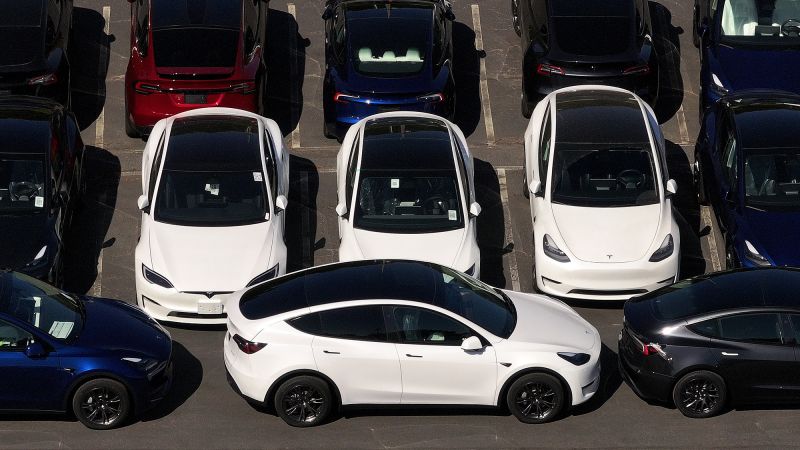In the second quarter, Tesla’s profits dropped by more than 40% compared to the previous year. This decline is attributed to increased competition in the electric vehicle (EV) market from other automakers and a general slowdown in EV sales growth. Despite previously being the world’s most valuable automaker with strong sales and profitability, Tesla is now facing tougher competition both domestically and internationally. The overall interest in EVs has plateaued, contributing to Tesla’s decrease in profits.
Tesla reported an adjusted income of $1.8 billion in the quarter, or 52 cents per share, falling short of analysts’ expectations of 61 cents per share. This is significantly lower than the 91 cents per share it earned in the same quarter a year earlier. The decrease in profit margins can be attributed to a series of price cuts on EVs, impacting Tesla’s overall financial performance. This marks the second consecutive quarter of declining sales volume for Tesla, with the only other drop in sales occurring early in the pandemic due to factory closures.
Following this decline in profits, Tesla did not announce a new sales target for the full year but warned that future growth rates may be lower than those achieved in 2023. This shift in strategy highlights the challenges that Tesla is facing in a more competitive market. The company’s stock (TSLA) fell by 4% in after-hours trading, contributing to an overall decrease of 1% in share value so far this year. At one point earlier in the year, Tesla shares were down by as much as 44%, reflecting the volatility in the EV market.
As Tesla continues to navigate these challenges, it remains to be seen how the company will adapt to the changing landscape of the EV market. With competition on the rise and consumer interest in EVs stabilizing, Tesla may need to reevaluate its sales and growth strategies to maintain its position in the industry. The uncertainty surrounding Tesla’s future performance and market share adds complexity to the company’s outlook and raises questions about its long-term viability as a leader in the EV sector.
Despite the current setbacks, Tesla’s history of innovation and its reputation as a pioneer in the EV market cannot be overlooked. The company’s success in popularizing electric vehicles in the United States has had a lasting impact on the automotive industry as a whole. Moving forward, Tesla will need to leverage its brand recognition and technological advancements to stay competitive in a rapidly evolving market with new challenges and competitors.
In conclusion, Tesla’s recent decline in profits serves as a reminder of the challenges that even the most successful companies can face in an increasingly competitive market. With shifting consumer preferences and new entrants in the EV space, Tesla must adapt and innovate to maintain its position as a key player in the automotive industry. The coming months will reveal how Tesla responds to these challenges and whether it can sustain its growth and profitability in the face of increased competition and changing market dynamics.













